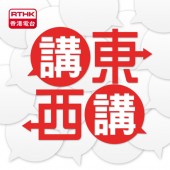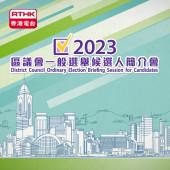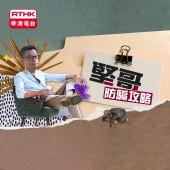 載入中 ...
載入中 ...
返回
Executive Councillor and Legislator Tommy Cheung
2019-02-17
My dear Natalie,
Happy Lunar New Year to you and wishing you good health and happiness in the Year of Pig!
As time goes by, you have grown in your career as a seasoned medical practitioner in the U.S.
Do you remember the letter I wrote on the shortage of doctors in Hong Kong in 2016? It has become a hot issue again following the latest outcry from the medical staff over the worsening working environment at public hospitals.
In fact, the Liberal Party and I from time to time have lobbied hard for admission of non-locally trained doctors, as a short or medium term measure, to meet local demand.
However, to my great disappointment and surprise, at a Legislative Council question and answer session two weeks ago, the Chief Executive Mrs Carrie Lam said it was not the right time to discuss about such a controversial policy as public medical staff were currently confronted with the overloading situation at the frontline.
Rightfully so, we are all worried about the medical staff of the Hospital Authority who have been overwhelmed with the surge in patient numbers during influenza seasons over the past two years. There is a pressing urgency to think of practical options to help them out of this repeated chaos.
Importation of doctors is not a panacea for all the problems but I strongly believe that sufficient manpower can allow for a major improvement on the overloading situation of public hospitals.
Several years ago, you told me that Hong Kong is not the only place having the problem of doctor shortage. In the face of this rising global concern, more and more countries have opened their doors to medical talents with attractive importation packages.
Unfortunately, our existing gatekeeping system set up by the Medical Council of Hong Kong does not really facilitate the entry for experienced overseas trained doctors and, to certain extent, is excluding highly-qualified medical practitioners or surgeons.
In fact, there is no logic for experienced doctors, who have left medical schools for years, to sit for a licensing examination which is composed of contents that local medical students learn in a seven-year medical school program. Even if they successfully pass the examination, they will then have to complete a 12-month period of internship in an approved hospital or institution in Hong Kong. It is demeaning for any experienced doctor to have to undergo an internship again before getting a full registration here.
It has been suggested that we could draw reference from the Singapore model which has already proven to be feasible and have a good track record of offering high quality medical care.
I further propose to modify this model for those doctors who graduated from medical schools of renowned universities overseas to be allowed to work in our public hospitals as well as the Faculties of Medicine of the two universities under the limited registration, while their specialist qualifications will be recognized by the Hong Kong Academy of Medicine after a completion of services in our public health sector for not less than five years, without the need to pass the medical licensing examination and internship; they then are free to choose to work either in the private or public health sector.
With this proposal, we not only ensure that these doctors are given licences to practice in Hong Kong after demonstrating capability in their specialties during their services in the public health sector under supervision but also ease the public medical manpower shortage in the short term and provide more choices of doctors to the middle class if some of them enter the private health sector in the long term.
This is certainly a win-win situation that will attract more experienced overseas-trained doctors as well as provide high quality medical services for Hong Kong residents.
Natalie, I know that you have your concerns in coming back to work at a hectic environment yet you still have the fervour to serve your hometown in the medical field. I know many Hong Kong doctors working abroad like you share the same thoughts.
Therefore, I have suggested to the government to prioritize and allow children of Hong Kong residents who attained medical qualifications overseas to work in the Hospital Authority and provide the incentives I mentioned above to lure them to come back first. I am sure that as Cantonese-speakers, they can offer instant help at the frontline of public hospitals.
Indeed, a fair amount of recent editorials are crying out loudly to support the recruitment of non-locally trained doctors as our healthcare services are facing much higher pressure, with a rapidly ageing population; in addition to the realization of "one-hour living circle" in the Guangdong-Hong Kong-Macao Greater Bay Area. More and more Mainlanders are coming to Hong Kong to seek medical treatment, thereby leading to a lucrative private medical market and a talent drain from the public healthcare sector.
Even though the government has undertaken to gradually increase the number of medical training places in the coming years, it is by no means an immediate remedy. This solution will take quite a long time to realize its effect as it will take about 7 years to train a fully qualified general practitioner and as long as 13 years for a specialist. This supply is far below the demand.
Without doubt, I know the Chief Executive is committed to building a sustainable healthcare system for Hong Kong, with continuous efforts in promoting primary health care and community care. Other measures taken to try to ease the overcrowding include enhancing public-private collaboration and improving workflow and patient management at public hospitals. However, no one will deny that medical manpower in Hong Kong is far behind the needs and expectations of society.
We are demanding for a comprehensive and multi-pronged approach to tackle the problem. Importation of experienced foreign trained doctors is certainly a practical way to flexibly address local demand for doctors in response to demographic changes in Hong Kong given the limited resources.
So, it is not only the right time but also the opportune time for the government to take a lead to consolidate the differing views on the admission of non-locally trained doctors and to formulate a practicable and forward-looking plan for us.
Natalie, thanks for your insights and thoughts you have shared with me all along. I will continue to appeal to the Government to duly consider our proposal.
Love,
Dad
Happy Lunar New Year to you and wishing you good health and happiness in the Year of Pig!
As time goes by, you have grown in your career as a seasoned medical practitioner in the U.S.
Do you remember the letter I wrote on the shortage of doctors in Hong Kong in 2016? It has become a hot issue again following the latest outcry from the medical staff over the worsening working environment at public hospitals.
In fact, the Liberal Party and I from time to time have lobbied hard for admission of non-locally trained doctors, as a short or medium term measure, to meet local demand.
However, to my great disappointment and surprise, at a Legislative Council question and answer session two weeks ago, the Chief Executive Mrs Carrie Lam said it was not the right time to discuss about such a controversial policy as public medical staff were currently confronted with the overloading situation at the frontline.
Rightfully so, we are all worried about the medical staff of the Hospital Authority who have been overwhelmed with the surge in patient numbers during influenza seasons over the past two years. There is a pressing urgency to think of practical options to help them out of this repeated chaos.
Importation of doctors is not a panacea for all the problems but I strongly believe that sufficient manpower can allow for a major improvement on the overloading situation of public hospitals.
Several years ago, you told me that Hong Kong is not the only place having the problem of doctor shortage. In the face of this rising global concern, more and more countries have opened their doors to medical talents with attractive importation packages.
Unfortunately, our existing gatekeeping system set up by the Medical Council of Hong Kong does not really facilitate the entry for experienced overseas trained doctors and, to certain extent, is excluding highly-qualified medical practitioners or surgeons.
In fact, there is no logic for experienced doctors, who have left medical schools for years, to sit for a licensing examination which is composed of contents that local medical students learn in a seven-year medical school program. Even if they successfully pass the examination, they will then have to complete a 12-month period of internship in an approved hospital or institution in Hong Kong. It is demeaning for any experienced doctor to have to undergo an internship again before getting a full registration here.
It has been suggested that we could draw reference from the Singapore model which has already proven to be feasible and have a good track record of offering high quality medical care.
I further propose to modify this model for those doctors who graduated from medical schools of renowned universities overseas to be allowed to work in our public hospitals as well as the Faculties of Medicine of the two universities under the limited registration, while their specialist qualifications will be recognized by the Hong Kong Academy of Medicine after a completion of services in our public health sector for not less than five years, without the need to pass the medical licensing examination and internship; they then are free to choose to work either in the private or public health sector.
With this proposal, we not only ensure that these doctors are given licences to practice in Hong Kong after demonstrating capability in their specialties during their services in the public health sector under supervision but also ease the public medical manpower shortage in the short term and provide more choices of doctors to the middle class if some of them enter the private health sector in the long term.
This is certainly a win-win situation that will attract more experienced overseas-trained doctors as well as provide high quality medical services for Hong Kong residents.
Natalie, I know that you have your concerns in coming back to work at a hectic environment yet you still have the fervour to serve your hometown in the medical field. I know many Hong Kong doctors working abroad like you share the same thoughts.
Therefore, I have suggested to the government to prioritize and allow children of Hong Kong residents who attained medical qualifications overseas to work in the Hospital Authority and provide the incentives I mentioned above to lure them to come back first. I am sure that as Cantonese-speakers, they can offer instant help at the frontline of public hospitals.
Indeed, a fair amount of recent editorials are crying out loudly to support the recruitment of non-locally trained doctors as our healthcare services are facing much higher pressure, with a rapidly ageing population; in addition to the realization of "one-hour living circle" in the Guangdong-Hong Kong-Macao Greater Bay Area. More and more Mainlanders are coming to Hong Kong to seek medical treatment, thereby leading to a lucrative private medical market and a talent drain from the public healthcare sector.
Even though the government has undertaken to gradually increase the number of medical training places in the coming years, it is by no means an immediate remedy. This solution will take quite a long time to realize its effect as it will take about 7 years to train a fully qualified general practitioner and as long as 13 years for a specialist. This supply is far below the demand.
Without doubt, I know the Chief Executive is committed to building a sustainable healthcare system for Hong Kong, with continuous efforts in promoting primary health care and community care. Other measures taken to try to ease the overcrowding include enhancing public-private collaboration and improving workflow and patient management at public hospitals. However, no one will deny that medical manpower in Hong Kong is far behind the needs and expectations of society.
We are demanding for a comprehensive and multi-pronged approach to tackle the problem. Importation of experienced foreign trained doctors is certainly a practical way to flexibly address local demand for doctors in response to demographic changes in Hong Kong given the limited resources.
So, it is not only the right time but also the opportune time for the government to take a lead to consolidate the differing views on the admission of non-locally trained doctors and to formulate a practicable and forward-looking plan for us.
Natalie, thanks for your insights and thoughts you have shared with me all along. I will continue to appeal to the Government to duly consider our proposal.
Love,
Dad
Politicians and public figures from a range of backgrounds take turns to have their say on important matters of the day in this personal view programme.
Catch it live: Sunday 8:15am - 8:25am
Podcast: Updated weekly and available after broadcast.











